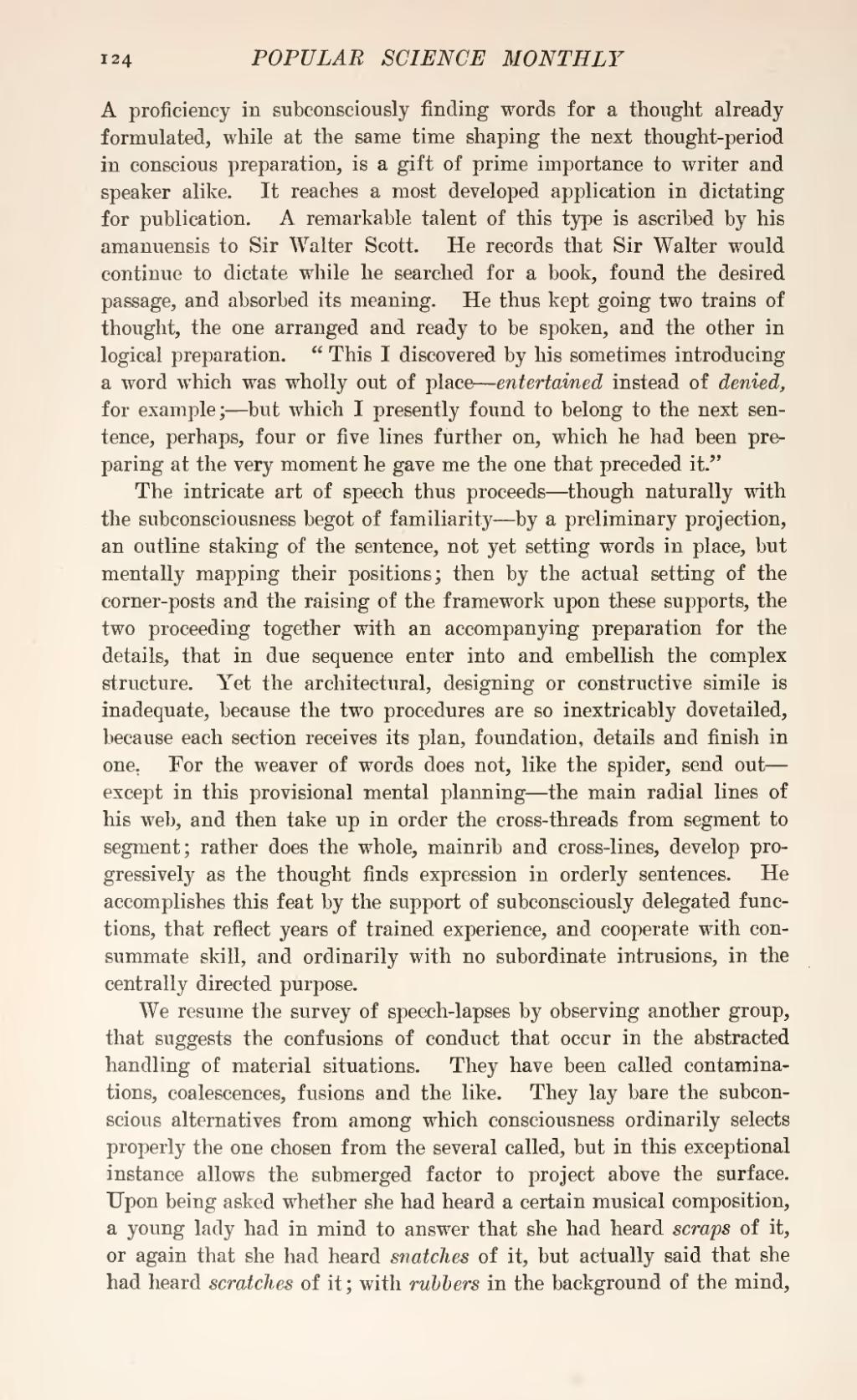A proficiency in subconsciously finding words for a thought already formulated, while at the same time shaping the next thought-period in conscious preparation, is a gift of prime importance to writer and speaker alike. It reaches a most developed application in dictating for publication. A remarkable talent of this type is ascribed by his amanuensis to Sir Walter Scott. He records that Sir Walter would continue to dictate while he searched for a book, found the desired passage, and absorbed its meaning. He thus kept going two trains of thought, the one arranged and ready to be spoken, and the other in logical preparation. "This I discovered by his sometimes introducing a word which was wholly out of place—entertained instead of denied, for example;—but which I presently found to belong to the next sentence, perhaps, four or five lines further on, which he had been preparing at the very moment he gave me the one that preceded it."
The intricate art of speech thus proceeds—though naturally with the subconsciousness begot of familiarity—by a preliminary projection, an outline staking of the sentence, not yet setting words in place, but mentally mapping their positions; then by the actual setting of the corner-posts and the raising of the framework upon these supports, the two proceeding together with an accompanying preparation for the details, that in due sequence enter into and embellish the complex structure. Yet the architectural, designing or constructive simile is inadequate, because the two procedures are so inextricably dovetailed, because each section receives its plan, foundation, details and finish in one. For the weaver of words does not, like the spider, send out—except in this provisional mental planning—the main radial lines of his web, and then take up in order the cross-threads from segment to segment; rather does the whole, mainrib and cross-lines, develop progressively as the thought finds expression in orderly sentences. He accomplishes this feat by the support of subconsciously delegated functions, that reflect years of trained experience, and cooperate with consummate skill, and ordinarily with no subordinate intrusions, in the centrally directed purpose.
We resume the survey of speech-lapses by observing another group, that suggests the confusions of conduct that occur in the abstracted handling of material situations. They have been called contaminations, coalescences, fusions and the like. They lay bare the subconscious alternatives from among which consciousness ordinarily selects properly the one chosen from the several called, but in this exceptional instance allows the submerged factor to project above the surface. Upon being asked whether she had heard a certain musical composition, a young lady had in mind to answer that she had heard scraps of it, or again that she had heard snatches of it, but actually said that she had heard scratches of it; with rubbers in the background of the mind,

